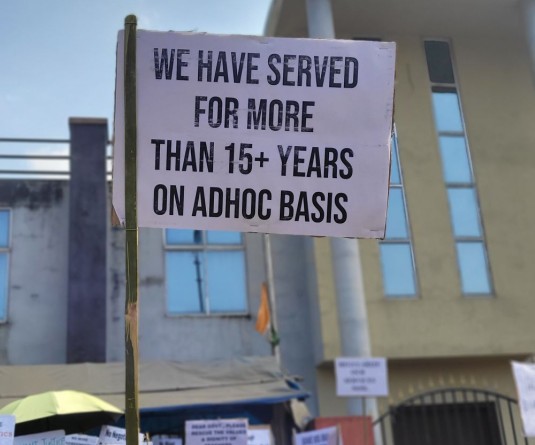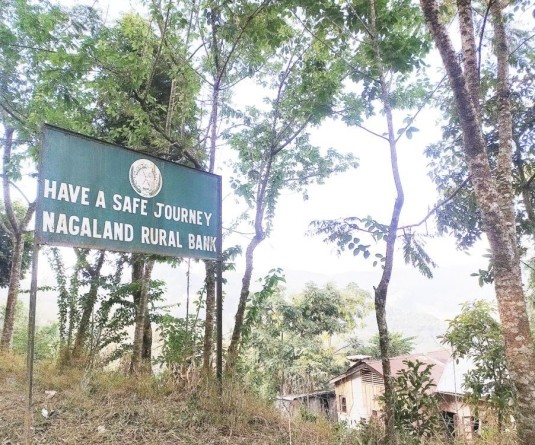Asangla Imsong speaking at the one day workshop vartalap organised by Presss Information Bureau, Kohima on February 26 at Kohima.

Media workshop vartalap held
Morung Express News
Kohima | February 26
Adequate and thorough inflow of information with the required tools is crucial to reach to the grassroot level in order to empower the people, said Asangla Imsong, Joint Director, Directorate of Information & Public Relations.
She was speaking as the special guest at the one day media workshop vartalap on the theme ‘improving information dissemination in Nagaland’ organised by the Press Information Bureau, Ministry of Information & Broadcasting, Government of India today at Eastgate Hotel, Kohima.
Although it is challenging with the onslaught of media, Imsong however, implied that government agencies must improve its ways of disseminating information to the people to enable the targeted beneficiaries to avail the schemes and programmes.
She pointed that feedbacks both positive and negative from the ground level is prerequisite to improve and better the implementation of any schemes.
While observing that often information about the schemes and policies failed to reach the targeted group of people, she also emphasised on the need for collaboration between the implementing agencies and the media.
Media, she maintained, needs to highlight the welfare schemes through indepth and impact features, which will encourage people’s participation.
Guest speaker, Alice Yhoshü, President, Kohima Press Club (KPC) said while the centrally sponsored schemes (CSS) are designed and intended to help the people, the government is often criticised for inadequate implementation and last-mile delivery of such schemes.
Attributing lack of adequate information among those whom the policies are basically formulated, she maintained that without proper information, there will be no active participation from stakeholders, which will in turn make way for loopholes in the monitoring mechanism opening doors for ‘diversion of funds, corruption and failure.’
Besides proper information dissemination, implementation of many welfare schemes are also hampered, Yhoshü observed that due to inefficiency at the administrative level which can attributed to, again, improper monitoring, and misalignment of incentives. ‘Proper feedback should be channelized to the policymakers to modify the systematic flaws she added.
The media, she informed, most often has limited exposure to most of the schemes as there is little or no interaction at all between the implementing departments and journalists. To this end, Yhoshü emphasised on the need to conduct training or workshop for journalists to understand the objective and intent of the schemes so it is interpreted to the target audience.
General Secretary, KPC Atono Tsükrü Kense as one of the guest speakers presented an overview of the implementation of welfare schemes in Nagaland, which are all targeted to improve the quality of life in a sustainable manner.
Resource persons during the technical session were Imsumeren, Project Officer, Tribal Affairs; Vihesanuo Solo, Assistant Director, Rural Development and Khrolou Koza Lohe, Assistant Manager, NSDMA. They highlighted on the completed and undergoing programme under CSS which are being undertaken by their respective departments.





